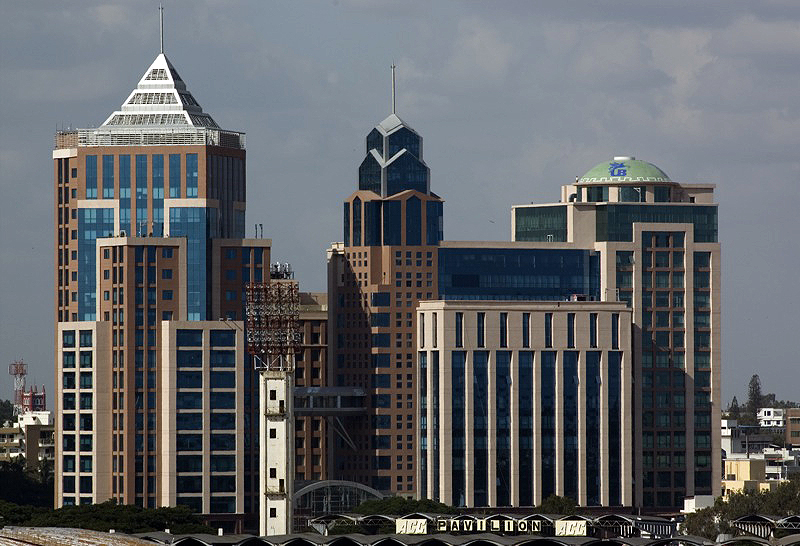Technology in India
Interview with
Helen - Now it's been a while since we've had an update on the world of technology. So it's time to join our resident expert Chris Vallance for a summary of what's been going on over the summer as well as insight into the social effects of the technology boom in India.
Chris V - Well it has been a while since we spoke and in the intervening months I think there were two events which for me highlighted the way that technology is changing and I think we should talk about. You'd have to have been hiding under a rock to miss the first one, that's the 40th anniversary of the Apollo Moon landing. Obviously the Apollo Moon landing is important for technology as it's the early uses of things like integrated circuits, fuel cells. Obviously people debated and discussed the contribution to technology that those landings made. But certainly events that are very important for people with an interest in space and the technologies surrounding it. And we fast-forward to September and we have the announcement that one of the new countries to enter into space exploration; India, the Indian Chandrayaan probe had discovered evidence of water on the moon. Now it's interesting for us to talk about India at the moment because obviously everybody hears about the Indian tech boom and what that means for the country. A lot of it focused around the city of Bangalore. One of my colleagues has just been there: Jamilla Knowles, who's been looking at what this most tech-enabled of Indian cities can say about how technology is changing, the social relations in India between the haves and the have-nots. Obviously a country where there is still a great gulf between those two groups. What did you find?
fast-forward to September and we have the announcement that one of the new countries to enter into space exploration; India, the Indian Chandrayaan probe had discovered evidence of water on the moon. Now it's interesting for us to talk about India at the moment because obviously everybody hears about the Indian tech boom and what that means for the country. A lot of it focused around the city of Bangalore. One of my colleagues has just been there: Jamilla Knowles, who's been looking at what this most tech-enabled of Indian cities can say about how technology is changing, the social relations in India between the haves and the have-nots. Obviously a country where there is still a great gulf between those two groups. What did you find?
Jamilla - I found things that you would probably expect if you start reading about Bangalore the area of poverty, the population is as huge in comparison with those who are employed, say. And also that there are huge areas throughout the city of migrant workers living in slums, basically building glass shiny edifices to technology that we use. So it's quite stark but it's something that has been happening for the last decade or so. So it's looking more at the kind of politics and the consciousness of people who are in Bangalore as a city. I went across to the Centre for Internet and Society inspecting Nishant Shah there, who's the director of research. And he was talking about a sort of a feeling and a consciousness generally of people having a relationship with the internet and that would be even people who have never even used a computer.
Nishant - So the case study in Ahmdebad, which is where the people who were living in slums on the river front, on the Sabarmati river front, are now demolishing their own houses and are being employed by the state to do that in order to build an IT skyline for the city. There is no resentment among the people, there seems to be no protest initiated by civil society organizations. And when you kind of talk to the people they keep on telling you it's because of that internet. And they've never seen a computer and they've never been online and they don't know what the internet is about. But they imagine themselves as having access to the internet by building this particular kind of infrastructure. These are the invisible people of the IT story. These are people we no longer talk about. We always talk about either people in call centres or in back processing offices or offshore development centres or you know start ups who are working on technology. People who are visible and who have a voice and who are so quintessentially a part of technology that we forget that there is an entire support system which is also defined by internet technologies in India. And then we start talking about IT cities and IT parks and so on but are these people who aspirationally or experientially a part of the internet paradigm but not the technology. 
Chris V - So that's fascinating. So people who are the very poorest people in Bangalore, completely separate from the tech boom have this idea of the internet but they've never actually used it.
Jamilla - It's almost as though it's in the air, it's everyone from auto rickshaw drivers from children in schools that are really in need. These are kids who live with their parents who move around the city looking for work as labourers and often suffering from skin conditions from malnutrition. But they understand, they know why their city is changing.
Chris V - Is the internet benefiting these people in any way apart from the economic benefits?
Jamilla - What are they getting direct benefits from the internet is difficult to say. Some of the online companies will say yes because they will go to rural areas and show local people or farmers, "Here's the internet it's great," but essentially they'll put it on a bus which will then drive away again so it's quite difficult to see that. Going back to things like education which seems to be underpinning their hopes for improvement. They are doing things like sourcing information online in educational centres then burning CDs which become educational supplements for teachers in rural areas. Because they may not have the skills in say the sciences or mathematics that maybe teachers who are in urban areas do, so they can actually record a lesson and send it out and supplement that with information that they found online.
Chris V - Did you get a sense that there are almost two cities, the bright shining new city and there was the older city of people who didn't have access to the technology?
Jamilla - Definitely and it's quite often the migrant workers from other states who don't have the access. Local people in Bangalore have a slightly different argument with the fact that basically they've been overrun with people from all over the world and all over the country thinking of Bangalore as one of the places that might be paved with gold when it comes to employment. And instead there's a great deal of unemployment and it's happening to them as well because the population has just exploded and they're not necessarily trained up to go and work in IT support, to go and work in a call centre, to go and work as a developer or coder. I mean, that's far beyond the ken of many of the people who live there.










Comments
Add a comment